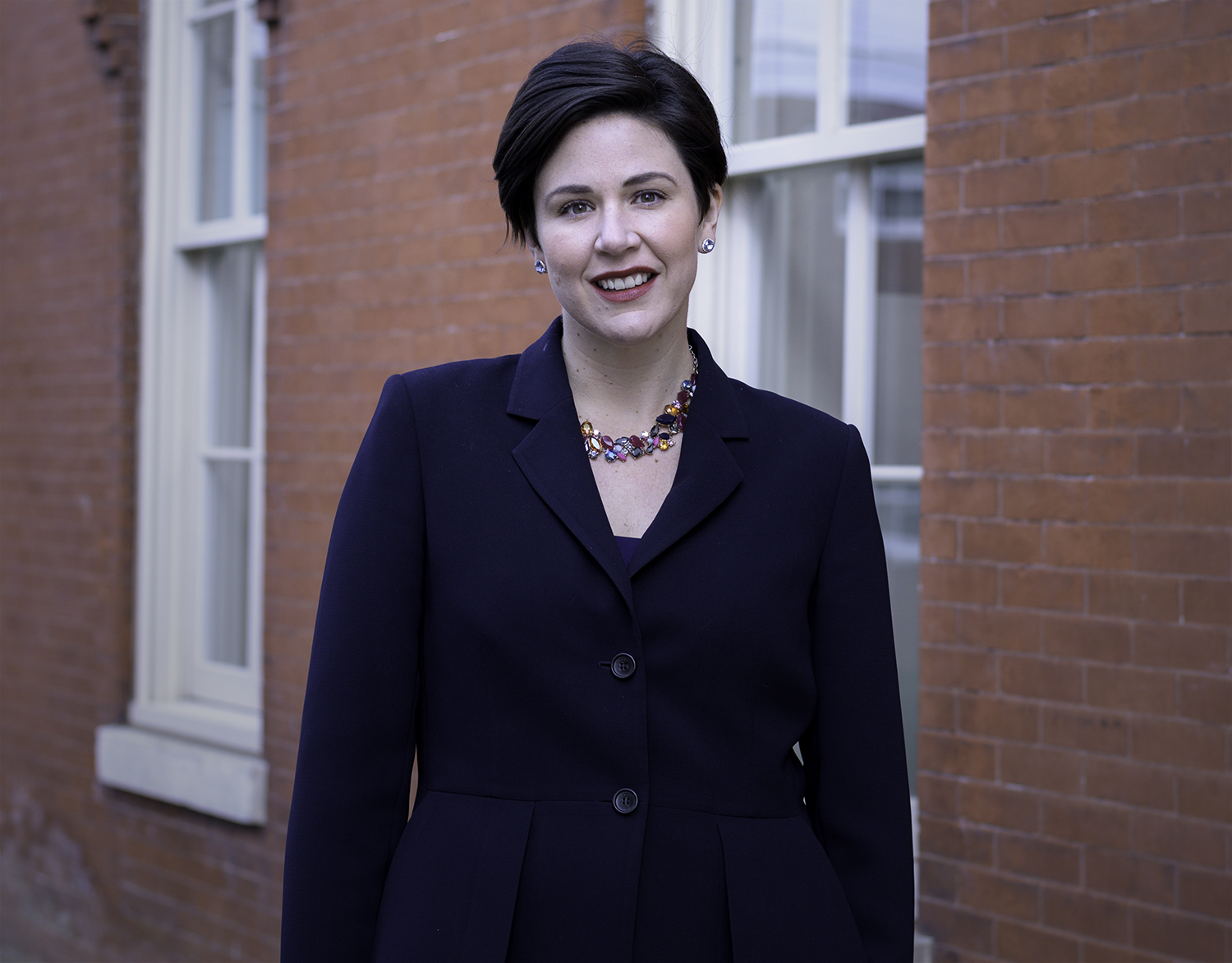Sarah Steltz
A small group of people can generate big change

Past Director of Workforce & Economic Inclusion, Office of University & Community Partnerships
While she was Director of Workforce & Economic Inclusion for the Office of University and Community Partnerships, Sarah Steltz took the lead in developing and implementing strategies, programs, and policies that shift university culture, increase efficiency, and result in positive community impact. But it was meeting Dr. Cornel West that inspired her to commit to this work of local inclusion. After attending a lecture and hearing West speak, she went home that night and made a decision to answer his call to action on the belief that change is possible.
In doing the work of community economic inclusion Steltz is motivated by two main ideas: one, that equity is possible in a way that everyone benefits and the institution does not miss out; and two, that there is always more work to be done, when dealing with system-level brokenness. She says, “You cannot be content to sit still. What makes you crazy keeps you going, trying to fix the problems.”
Prior to her work at Drexel, Steltz held corporate jobs in talent management for a few years. Upon her arrival at Drexel Human Resources she worked as a human resources generalist. Part of her responsibilities included conducting job fairs and doing career counseling with local residents, helping jobseekers craft resumes and the like. After drawing inspiration from Dr. West, she asked for that to become her entire job, assisting neighborhood residents while helping the university become more inclusive in hiring more West Philadelphians.
With an internal move from Human Resources into the Office of University & Community Partnerships, Steltz was able to continue building out support programs for local job seekers, in particular deepening Drexel’s relationship with University City’s University City’s District’s West Philadelphia Skills Initiative (WPSI). In partnership with WPSI Steltz developed a medical assistant training program customized for Drexel’s medical practices, and further adapted the model to launch employee training for Drexel’s food services vendor, and later a Child Development Associate certification program that would link trainees to neighborhood childcare centers participating in Drexel’s Action for Early Learning early childhood education initiative.
As the lead implementer on Drexel’s economic inclusion agenda, Steltz also supported the work of Procurement Services to develop a coherent local purchase strategy, and worked closely with the Facilities division to help think through how local inclusion could be woven into campus construction practices.
Now recognized in Philadelphia as an innovative leader in the realm of local economic inclusion, Steltz cites the following skills and capacities as essential to her role:
- Being persuasive
- Being a good communicator
- Having the ability to figure out what motivates a person – a colleague or a nonprofit partner for instance – to make a particular strategy work, solving a problem for them while concurrently coming up with a solution for your own problem
- Not settling for or being satisfied with the status quo
To a counterpart at another institution contemplating embarking on a similar revision of inclusion procedures, Steltz cautions that “early missteps will do a disservice to the work, so take time to understand the neighborhood before you try to throw something together.” She advises that it is important to have access to information and support from someone at a high level in the institution. She offers encouragement, noting that it is possible for a small group of people to implement change: not overnight, but within the first year.
Strategic use of data enabled Steltz to convince colleagues at Drexel to buy in to this way of doing business. It was not enough to just assume that everyone would jump on board to “do the right thing,” as a university must also operate in a fiscally responsible way. She was able to demonstrate in the data where recruiting and training employees from West Philadelphia would be cost-efficient, beyond being the “socio-consciously right” thing to do.
The main challenge, as she sees it, would be resources, in terms of staff maintaining a committed focus on the work. Carrying out a comprehensive inclusion strategy requires time and attention.
But Steltz also sees substantial rewards to the institution beyond the mere fact of saving money. “An inclusive workforce only makes us better. The cliché in employment is ‘it’s about who you know,’ and bigger institutions are often closed off” when local residents have no actual ties to them, making it tough to access employment opportunities, particularly if that access is “about who you know. “The Dornsife Center provides that connection to the institution that can help West Philadelphians get a foot in the previously closed-off door.” The inclusion focus makes a connection to social capital, enabling the hiring of qualified neighbors who bring their own ideas and talents to work. It forms “a physical presence that serves as a bridge to opportunity.” Without it, she says that both sides would be missing out. “How would you have innovation with the same people, the same vendors, all the time?”
Dr. Cornel West’s message resonated with Steltz, and inspired her to believe that change is possible. Although it is easy to despair, West does not – and she feels this speaks to Drexel’s nature as an organization. “If you see something, believe it can be done, and the organization is nimble enough to make the change, then do it.” Now in a new position as Vice President of Workforce Solutions with one of Drexel’s key partners, West Philadelphia Skills Initiative, Steltz is glad for the nimbleness Drexel offered her to create a broad suite of inclusion programs and strategies.
Sarah says: “If you are place-based, make a commitment.”